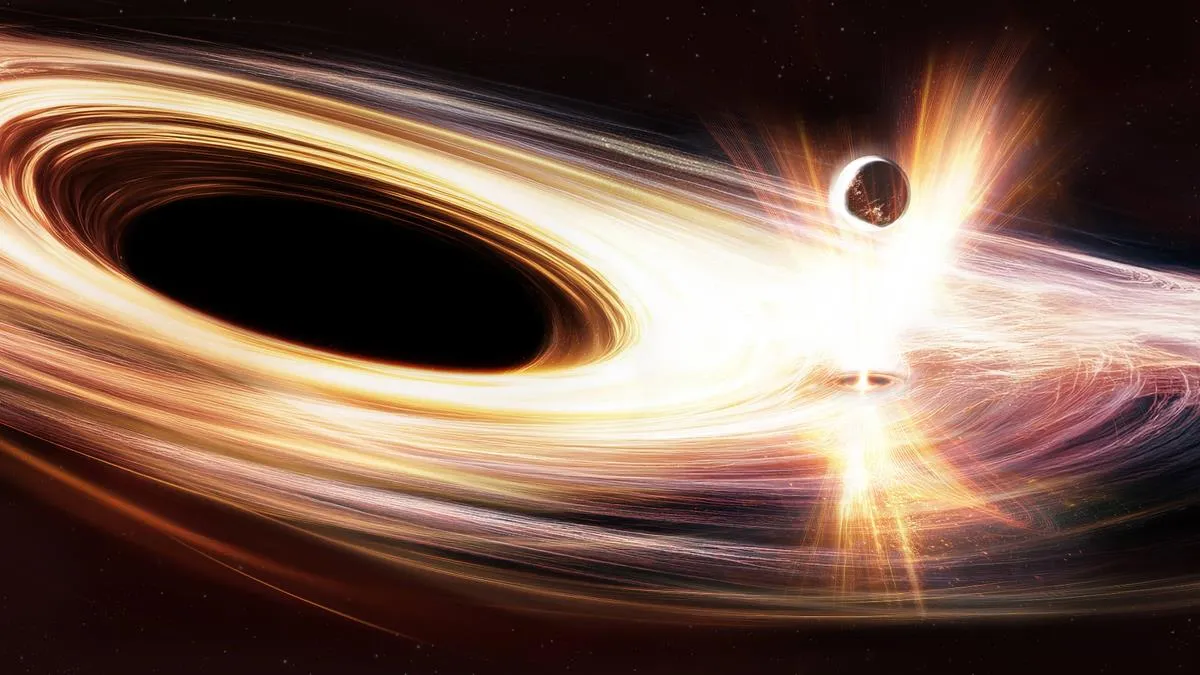
We've all experienced waking up in a terrible mood, but the newly observed supermassive black hole at the center of the galaxy SDSS1335+0728 is having a particularly tumultuous time. Located approximately 300 million light-years from Earth, this previously inactive black hole has been observed erupting with the longest and most powerful X-ray blasts ever recorded from such a colossal cosmic entity.
This active phase marks a significant change for the black hole, which has remained quiet for decades. The phenomenon is associated with its role in the active galactic nucleus (AGN) of its galaxy, a region aptly named Ansky by the research team. The awakening of Ansky was first detected in late 2019, prompting astronomers to investigate further using NASA's Swift X-ray space telescope. By February 2024, astronomers began observing Ansky erupting with flares at relatively consistent intervals, providing a unique opportunity to monitor a feasting and erupting supermassive black hole in real time.
The bursts of X-rays emitted from Ansky are remarkable, measuring ten times longer and ten times more luminous than typical quasiperiodic eruptions (QPEs). Joheen Chakraborty from the Massachusetts Institute of Technology (MIT) noted that each eruption releases approximately a hundred times more energy than previously observed in similar events. Additionally, Ansky's eruptions exhibit the longest cadence ever recorded, averaging about 4.5 days between bursts. This unprecedented behavior challenges existing models and theories regarding the mechanisms behind these X-ray flashes.
The team's observations of Ansky's QPEs have been greatly supported by various space missions, including the European Space Agency (ESA)'s XMM-Newton, and NASA's NICE and Chandra missions, along with archival data from eROSITA. Despite these advancements, scientists remain puzzled about the exact cause of Ansky's outbursts. Historically, QPEs have been linked to supermassive black holes capturing stars, tearing them apart, and consuming the remnants. However, this stellar destruction does not appear to be occurring in the case of Ansky.
As ESA Research Fellow and X-ray astronomer Erwan Quintin explained, "For QPEs, we're currently at a point where we have more models than data. We need further observations to unravel the mystery behind these phenomena." The research team initially theorized that QPEs resulted from smaller celestial bodies being captured by much larger black holes and spiraling towards them. Yet, Ansky's repetitive eruptions seem to suggest a different narrative altogether.
These fascinating bursts from Ansky are also likely linked to gravitational waves, which could be captured by ESA's future mission, LISA (Laser Interferometer Space Antenna), set to launch in 2037. Quintin highlighted the importance of combining X-ray observations with gravitational wave data, stating, "It’s crucial to have these X-ray observations that will complement the gravitational wave data and help us solve the puzzling behavior of massive black holes."
As research continues, the black hole Ansky remains an exciting subject in the field of astrophysics, challenging our understanding of the universe and the dynamics of supermassive black holes.